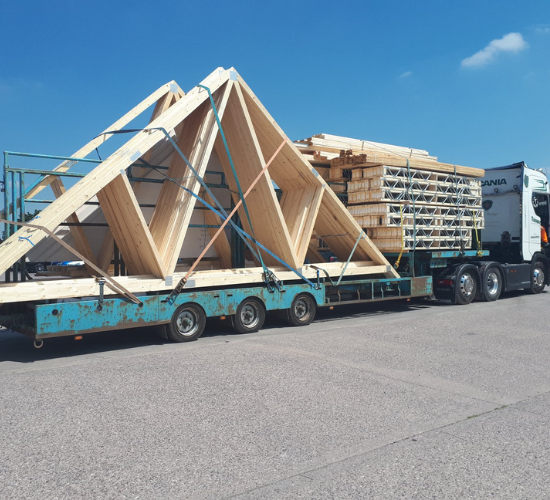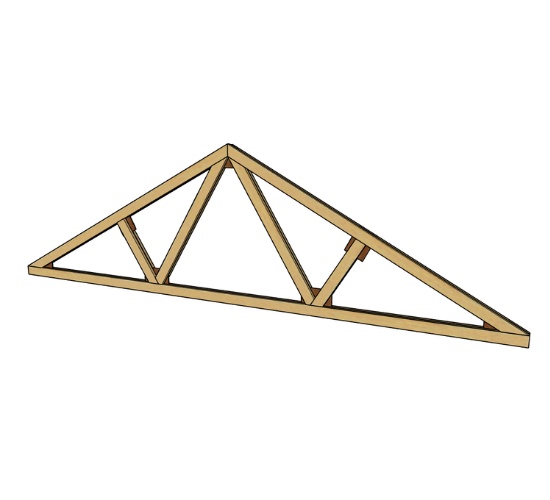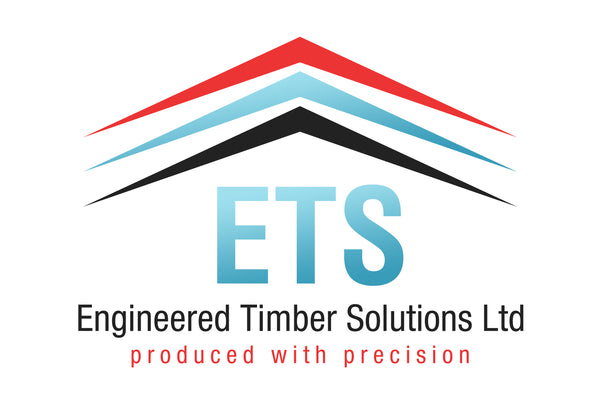
There is a wide variety of truss profiles that are available and offer a more cost-effective solution than a traditional cut roof. Of these profiles, a smaller number have become the standard shape across the industry.
Fink trusses are one of these profiles. Traditionally it is the most commonly used type of truss, providing a simple, adaptable and cost-efficient roofing solution.

Albert Fink, the German-born American civil engineer, invented this type of truss to solve the problem they faced with supporting bridges and roofs while constructing the railroads. His “Fink” truss designs from the 19th century are still in use today in a couple of bridges, showing not only the durability of the design but the effectiveness of this form of engineering. It is therefore no surprise that the fink is one of the most used type of truss used in the world.
This type of truss is a basic webbed design that provides the most economical roof solution. The web members form a ‘W’ to provide a high strength structure with excellent load-carrying capacity. In the early 1960s, the first timber fink trusses were used to create a roof in the UK, and from there the industry has grown.
Adaptable in their application, fink roof trusses are the workhorse of the roof truss types. Able to span much greater distances, their strength can be harnessed to support other areas of the roof, by doubling or tripling the number of plies, i.e. in a “hip” roof.

Due to its design flexibility, the fink truss is the most frequently used truss in roof design. With a large variety of spans up to 14 metres and pitch range from 10° to 60°, the fink truss offers a cost-effective and versatile roof solution.
The fink truss can be manufactured from the thinner 35 mm sections of timber. This smaller timber section means that the trusses are lighter, when on site this lighter weight can mean that handling on-site may require only two or three people instead of a team, or some variation of a mechanical lift. This can offer a cost-saving for smaller projects where the hire cost of a mechanical lift or extra labour could be a significant expense.
If you wish to know more about fink roof truss details, please contact our team on 01952 771170, email us at sales@etstrusses.co.uk or use the truss quotation form.
